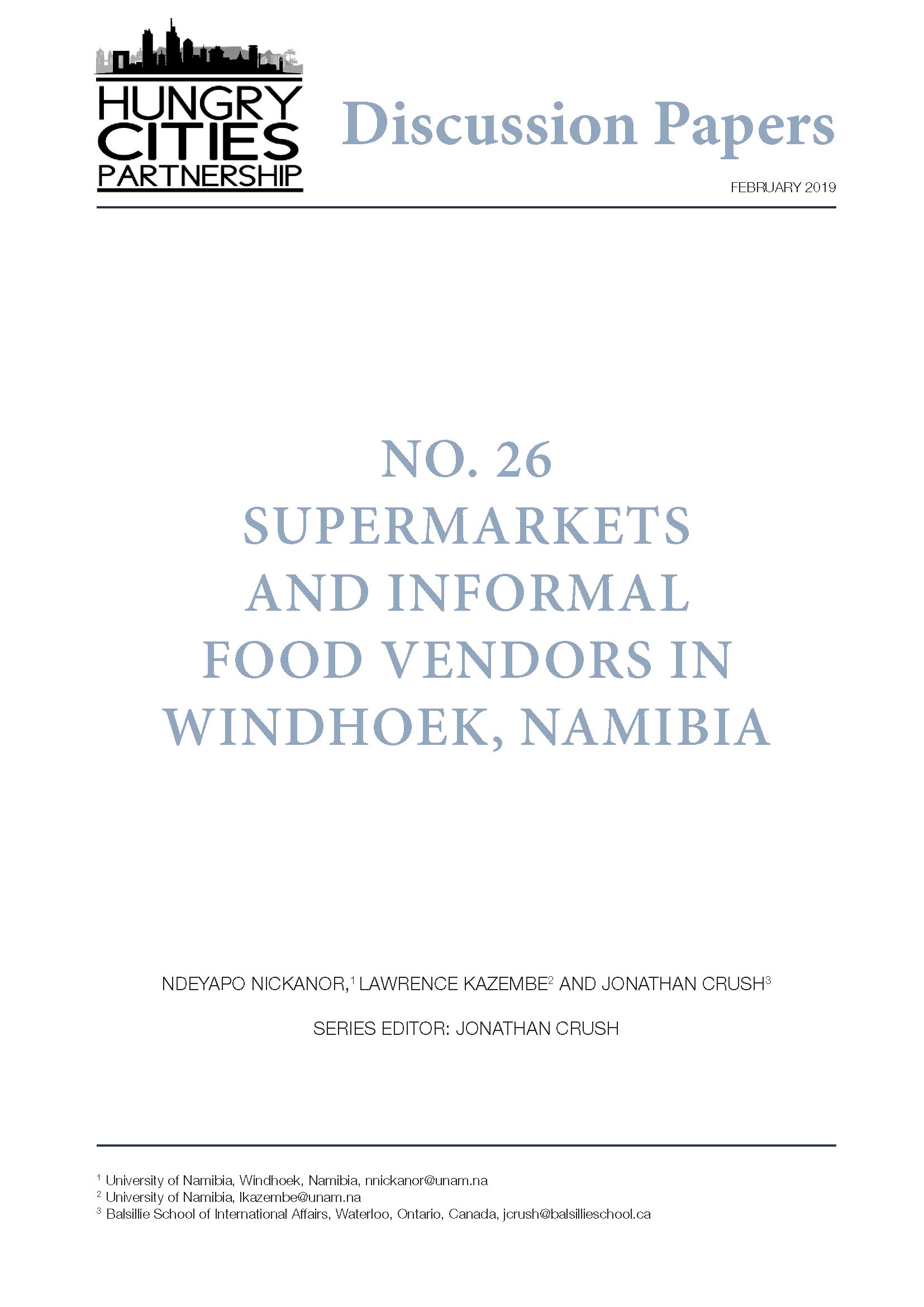Much of the literature on urban food systems has focused on the expansion of supermarkets and their ability to reach urban consumers. However, the current pace of urbanization and rising urban poverty have been accompanied by a major upsurge in informality and a growing role for the informal food sector. One of the persistent arguments in the literature on supermarkets is that the expansion of modern retail undermines the informal food sector. Critics of this argument suggest that there are two conditions under which this may not occur: first, when there is spatial differentiation with supermarkets servicing higher income areas and the informal sector targeting low-income areas. The second is when there is market segmentation – when the formal and informal sectors focus on the sale of different product types. This paper examines the case of Windhoek, Namibia, which has undergone a major supermarket revolution in the last two decades. It suggests that the informal food sector is vibrant and growing but that neither explanation fully accounts for its resilience. By examining the strategies of vendors, it suggests the concept of cohabitation as an alternative explanation. This concept may be a pertinent factor in other cities too.

